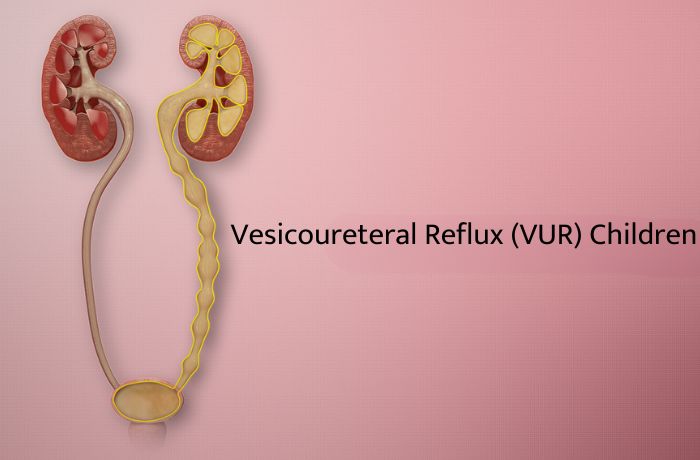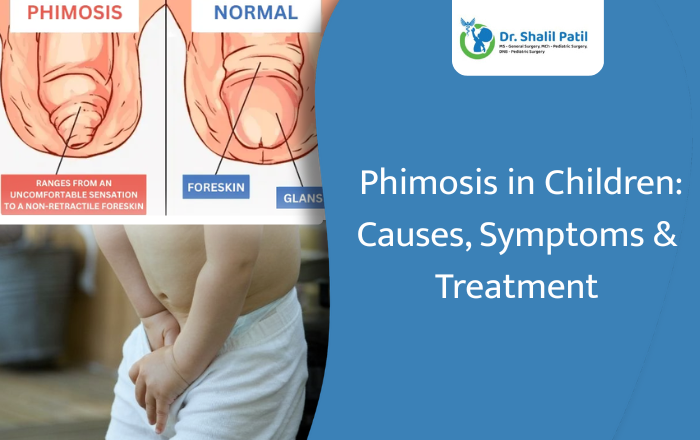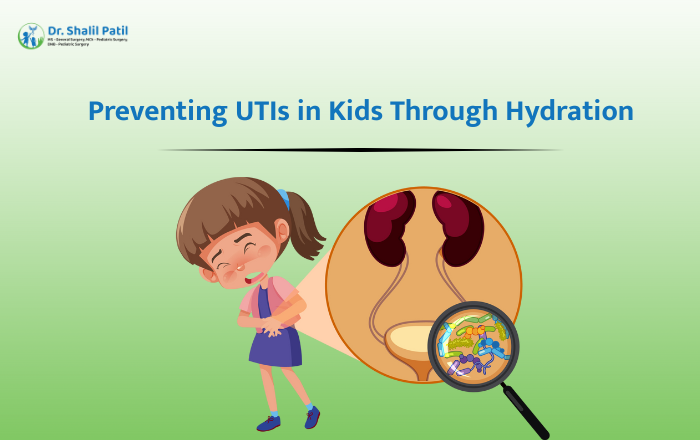Vesicoureteral reflux (VUR) is a condition that affects the urinary system, specifically in children. It occurs when urine flows backward from the bladder into the ureters and, in some cases, into the kidneys. This backward flow can cause infections and, over time, damage the kidneys. In this blog, we’ll explore what VUR is, its causes, symptoms treatment options, and why early diagnosis is important.
What Causes Vesicoureteral Reflux in Children?
Vesicoureteral reflux can be caused by a variety of factors and typically falls into two main categories:
1. Primary VUR: This is the most common type and is usually present at birth. It occurs because of an abnormality in the valve between the bladder and the ureters, which prevents urine from flowing in the correct direction. In many cases, this type of VUR may improve as the child grows and the valve matures.
2 Secondary VUR: This form develops later in life, often as a result of an underlying condition that blocks the bladder. Common causes include repeated urinary tract infections (UTIs) or a blockage in the urinary tract. When the bladder doesn’t empty properly, pressure increases, forcing urine to back up into the ureters.
Understanding the cause of VUR is important for proper management and treatment.
Common Symptoms of VUR in Children
Early detection of vesicoureteral reflux is important because children with VUR may not show obvious signs until the condition leads to complications such as kidney infections. Here are some common symptoms that parents should be aware of:
- Frequent urinary tract infections (UTIs): One of the clearest signs of VUR is recurrent urinary tract infections. These infections can cause fever, burning when urinating, or cloudy urine.
- Bedwetting and incontinence: Some children with VUR have trouble controlling their bladder, even after they’ve been potty trained.
- Pain or discomfort: A child with VUR may complain of pain in the abdomen or lower back, especially when urinating.
- Slow growth or weight gain: Chronic infections and kidney damage can affect a child’s overall health, causing slower growth or weight loss.
If your child has any of these symptoms, it’s important to see a doctor for further evaluation.
How is Vesicoureteral Reflux Diagnosed in Children?
If a doctor suspects vesicoureteral reflux, especially if a child has had repeated urinary tract infections, he or she may recommend certain tests to confirm the diagnosis. These tests include
- Ultrasound: A painless imaging test that looks at the kidneys, bladder, and ureters to detect abnormalities or blockages.
- Voiding cystourethrogram (VCUG): This test involves filling the bladder with a liquid dye and using X-rays to watch how urine flows during urination. It helps doctors see if urine is backing up into the ureters.
- DMSA scan: This scan is used to check for kidney damage caused by VUR.
These tests help determine the severity of VUR and guide treatment decisions.
Treatment Options for Vesicoureteral Reflux in Children
Treatment for VUR depends on the severity of the condition. In mild cases, VUR may improve on its own as the child grows. However, other cases may require medical intervention. Here are the most common approaches to treating VUR in children:
Monitoring and medication: For children with mild VUR, doctors may recommend regular check-ups and low-dose antibiotics to prevent UTIs while monitoring the condition to see if it resolves on its own.
Antibiotic therapy: For children who have frequent UTIs or moderate VUR, taking antibiotics regularly may help prevent infections that could damage the kidneys.
Surgery: If the VUR is severe, or if the child continues to have UTIs despite taking antibiotics, surgery may be needed to correct the problem. Surgery involves repairing the faulty valve between the bladder and the ureters, which prevents urine from flowing backward. Most children recover quickly from surgery and have few or no infections.
Parents need to work closely with their child’s doctor to determine the best treatment option based on the child’s needs and the severity of the VUR.
Complications of Untreated Vesicoureteral Reflux
Without proper diagnosis and treatment, vesicoureteral reflux can lead to serious complications. The most significant risk is kidney damage, which can occur when infections repeatedly travel from the bladder to the kidneys. This can cause scarring of the kidney tissue, which can eventually lead to
- High blood pressure: Kidney scarring can cause blood pressure to rise over time.
- Chronic kidney disease: Untreated VUR can reduce kidney function, potentially leading to long-term kidney problems.
- Kidney failure: In extreme cases, untreated VUR can cause irreversible damage to the kidneys, leading to kidney failure requiring dialysis or transplantation.
Early treatment and careful monitoring can help prevent these complications.
Pediatric Surgeons and Specialists for VUR Treatment in Virar
When dealing with VUR in children, it’s important to consult with a pediatric specialist who understands the condition and how it affects the urinary system. Pediatric surgeons and urologists specialize in treating children with urinary and kidney problems, including VUR. In some cases, a pediatric surgeon may recommend surgery if other treatments don’t work. Choosing the right specialist can make a big difference in your child’s recovery and long-term kidney health.
Dr. Shalil Patil – Pediatric Surgeon in Virar for VUR Treatment
For parents in Virar seeking care for their child’s vesicoureteral reflux, Dr. Shalil Patil is a respected pediatric surgeon who has experience treating children with this condition. His focus on pediatric urological issues, including VUR, makes him a valuable resource for parents navigating their child’s health journey. Dr. Patil takes a patient-centered approach, providing guidance and support throughout the diagnosis and treatment process.
Vesicoureteral reflux is a manageable condition, especially if diagnosed and treated early. If your child is experiencing frequent urinary tract infections, discomfort when urinating, or other symptoms, it’s important to consult a pediatric specialist. By working with professionals like Dr. Shalil Patil, parents can ensure that their child receives the proper treatment and avoid potential complications in the future.





